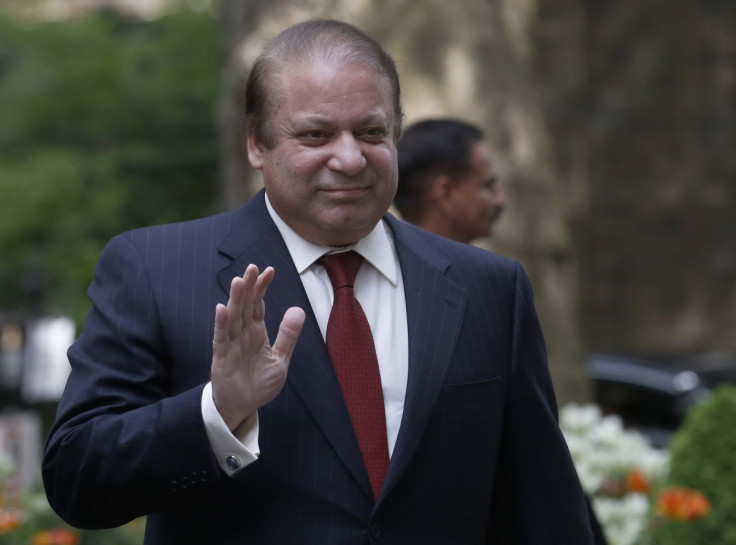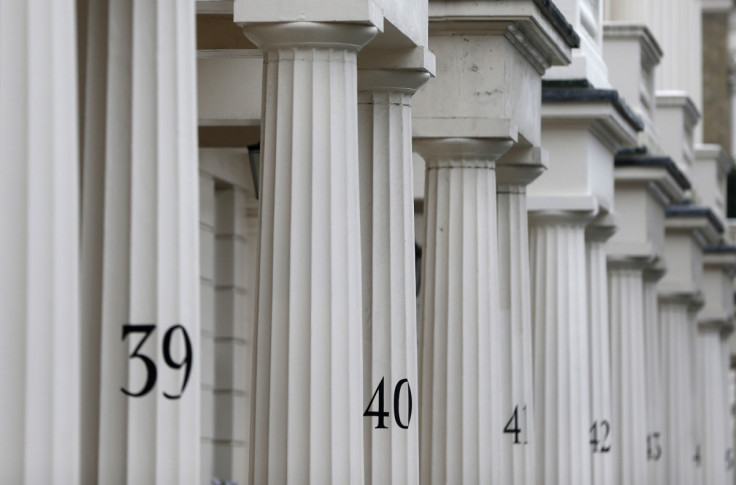Panama Papers: London property and the global elite who own it exposed

We all knew the world's wealthy elites siphon money through tax havens and pour it into London's luxury property market, but rarely have names and details been cast into the public spotlight as has happened with the Panama Papers.
More than 11 million documents have leaked from offshore services firm Mossack Fonseca, based in Panama, to the International Consortium of Investigative Journalists (ICIJ), showing the inner workings of the firm as it acted on behalf of rich clients wanting to use offshore tax havens. Tax avoidance is legal and all those named in the leak deny any wrongdoing. Mossack Fonseca says it acts within the law and that it has been the victim of hackers.
In the latest batch of revelations, a number of high-profile global figures have been shown to have used offshore structures, such as shell companies, to own some of the most expensive property in London. These people bought up residential and commercial property in London's exclusive postcodes, in prime central London postcodes like Kensington and Mayfair, where small flats can cost millions of pounds.
According to the Guardian, which had access to the leaked files, this list includes Sheikh Khalifa bin Zayed Al Nahyan, president of the United Arab Emirates, whose London property empire is worth over £1.2bn ($1.7bn); children of former Pakistan prime minister Nawaz Sharif; the ex-prime minister of Iraq, Ayad Allawi; president of the Nigerian senate, Bukola Saraki; the family of former Sudanese president Ahmad al-Mirghani; and Soulieman Marouf, the London fixer for Syria's President Bashar al-Assad. The son of former UN secretary-general Kofi Annan, Kojo Annan, is cited by the Daily Mail as using the offshore services of Mossack Fonseca to make money in London property.

Two of the tax havens at the centre of the Panama Papers are among the largest sources of foreign investment in the UK property market. And most of that investment ended up in London, where the prime property market boomed in the years after the financial crisis as cheap sterling, high returns and a stable democratic society lured in foreign capital. Since February 2006, Land Registry data shows the average London house price rose 86% to £530,368 in the same month a decade later. This boom started in the centre of London, where foreign investors jostled for the best properties, sending a price-shockwave rippling out to other parts of the city. While not the root cause of London's housing affordability crisis, widely attributed to a lack of supply, it has exacerbated the problem.
Both the British Virgin Islands and Panama are the two most popular tax havens used by Mossack Fonseca on behalf of its clients. The British Virgin Islands is also the largest single source of foreign ownership of UK property. There are 22,814 buildings in the UK with ownership stemming from this Caribbean tax haven alone, according to Land Registry figures, compiled by the Estates Gazette. Panama is eighth on the list at 2,039 buildings in the UK. The top 10 is dominated by tax havens, including Guernsey, Luxembourg and the Isle of Man.
"Wherever possible, an overseas buyer should consider acquiring a UK property in the name of an offshore company or other offshore vehicle," recommends Christopher Sykes, a solicitor and partner at Sykes Anderson Perry, in an article on the firm's website. The message is simple: if you're looking to London property, look offshore first. But why?
There are two big reasons foreign investors use offshore vehicles like trusts to buy property in the UK, and London in particular: tax and secrecy. Put simply, it is cheaper to buy and sell property through an offshore company or trust than as an individual. Offshore structures are not subject to Capital Gains Tax, which is 20% in the UK. Moreover, ownership of property can be passed on via the sale of shares in the offshore structure, meaning costly stamp duty is avoided by the purchaser. It is also possible to reduce or avoid Inheritance Tax altogether. While it may cost money to set up offshore vehicles, and management fees to run them, often this is much less expensive than paying the full rates of tax.
It is also easier to hide the real beneficial owner of an offshore company or trust. Offshore services firms specialise in privacy. They register the companies or trusts in their names, putting an opaque bureaucratic wall between their clients and the money they have offshore. In the shadows of offshore lawyers and accountants lurk the richest men and women in the world, obscured and sheltered. Estimates on how much wealth is hidden offshore vary, but it almost certainly runs into the trillions of dollars.
But both privacy and the tax benefits of offshore are coming under pressure from the British government, as well as embarrassing leaks such as the Panama Papers. From June 2016, there will be a public register of who the beneficial owners of UK companies are, a move to increase transparency over who owns and controls British businesses, including those who are based offshore. And the government has signed a number of information-sharing deals with low tax jurisdictions across the world that will see them receive the account details of British residents with offshore wealth.

"The government has led a transformation in global financial transparency which, from this year, will see HMRC automatically receive offshore account and trust data from more than 90 countries, including British Overseas Territories and Crown Dependencies with a financial centre," said the UK tax office in response to the Panama Papers. "We have also ended permanent non-dom status from April 2017, and ensured that Inheritance Tax will be levied on all UK residential property, regardless of its holding structure."
Property developers based offshore are also under intense scrutiny from the Treasury. HMRC has created a new task force targeting around 100 "high-risk" property developments in the UK with offshore financial backing. Moreover, the Finance Bill 2016 will, according to Treasury documents, "ensure offshore structures cannot be used to avoid UK tax on profits that are generated from developing UK property". While the estimates are uncertain, and past revenues from closing tax loopholes have been disappointing, the Treasury believes it will raise £2.28bn by 2020 in this particular crackdown.
For some, however, these and other anti-avoidance and evasion measures, including the Annual Tax on Enveloped Dwellings (ATED), a yearly levy on property owned by offshore companies and vehicles, are simply not enough. "In my opinion, if a company from outside the UK — at the moment we think there's about 94,000 — owns property in the UK, then that company should file accounts in this country as if it was incorporated here," said Richard Murphy of Tax Research UK, which campaigns against avoidance. "File a tax return as if it was incorporated here. File details of its beneficial ownership as if it was incorporated here. In other words, it should have to be treated as a British company. And if it doesn't do any of those things, then the land and the property it owns should be passed to the crown."
© Copyright IBTimes 2025. All rights reserved.






















